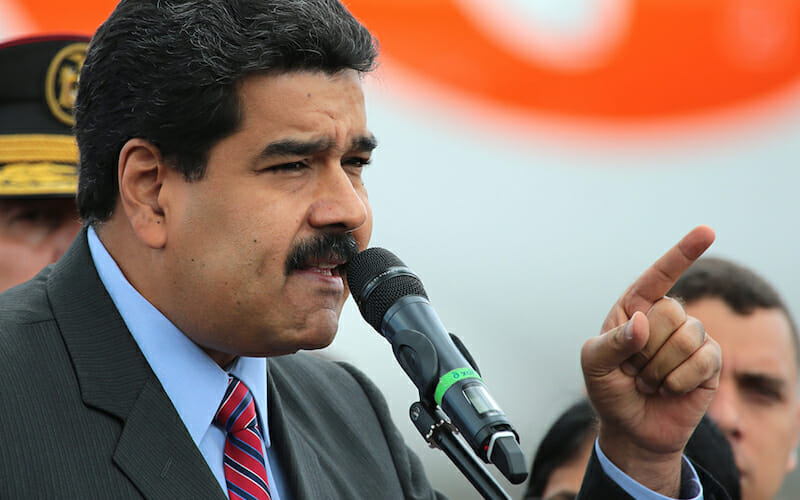
The Curious Case of Latin American (Dis)Integration
Few themes stand out as starkly in the history of Latin America as division. The New World was originally split between the Spanish and Portuguese in the treaty of Tordesillas, and then subdivided into different Spanish Viceroyalties. After independence, grand projects to unify large swaths of the region such as Simon Bolivar’s Gran Colombia, or the United Provinces of Central America succumbed to infighting amongst provincial leaders, and most recently the region has seen an ideological split between the countries of the leftwing Bolivarian Revolution, and other nations who have chosen to take a more centrist or conservative path.
The Latin America of today has a veritable alphabet soup of regional and sub regional organizations that include seemingly every possible combination of countries and ideologies. Even though almost all of its people are bound by strong cultural, linguistic, and religious ties, the region has been unable to present to the world a united economic or political front, despite the fact that doing so could significantly boost its international profile.
Now, a new chapter seems to be beginning in this familiar story. Several weeks ago, half of the members of the Union of South American Nations (UNASUR): Argentina, Brazil, Colombia, Chile, Peru, and Paraguay made known their desire to exit the bloc. Sighting gridlock, specifically the inability to agree on a Secretary General over the course of the past year, their announcement has sent the remaining countries, especially Bolivia, the country that currently occupies the presidency, scrambling to try and find a solution.
The founding of UNASUR in 2007 was spearheaded by a collection of leftist leaders, mainly Brazil’s Luis Ignácio Lula da Silva and to a lesser degree Venezuela’s Hugo Chávez, who managed to drag the rest of the continent along for the ride. Its goals are to pursue regional integration, as well as foster human and economic development while taking care of the environment and strengthening the security of its member countries. While economic integration akin to anything in the European or Asia remains a pipe dream, Sean Burges points out in America’s Quarterly that the organization has served an important purpose in its eleven years of existence as a forum for dialogue between the region’s leaders.
However, as several countries in the region have swung from the left to the right, and Brazil and Venezuela have become engulfed in internal problems, the group has fostered more disagreement than integration. For the last year, Venezuela has been holding up the nomination of the new secretary general, hoping to get someone in office who will be friendly to Caracas. This is possible because, according to the Argentine news outlet Infobae, UNASUR was conceived more as a loose alliance of likeminded presidents than an actual organization. Each country has veto power, and consequently decisions must be made unanimously. Because of this it is ill equipped to handle the kind of internal disagreement it is going through right now.
UNASUR has also been unable to mitigate the crisis unfolding in Venezuela or even to mediate between the government and the opposition. This, along with the continent’s previously referenced ideological shift, has caused a number of countries to question the almost $1 million annual dues they contribute to what they believe is a useless organization.
However, UNASUR is not the only organization being stretched by crises in the region, the Organization of American States (OAS), the flagship regional organization of the western-hemisphere, has also been able to do little to respond to the challenge in Venezuela. Despite the protests by Secretary Luis Almagro, several key Venezuelan allies, mainly countries with ideological affinities, or bought by Venezuelan oil, have prevented the OAS from taking substantial action.
All of this begs the question, why has regional integration progressed so slowly in Latin American compared to other, more culturally diverse parts of the world? The answer is due in part to ideological differences, but also to the lack of continent-wide unifying events in the last one hundred years. Unlike Europe which suffered two disastrous conflicts within a generation and was torn apart by communism, there has been no defining crisis, or event in Latin America to make its leaders see the need for unity and integration.
This lack of urgency has allowed many countries of the region to muddle along from ideology to ideology and organization to organization, while leaders use them as means to expand their own power (as seen with the Bolivarian Alliance triumphed by Hugo Chavez). This pursuit of self-interest has kept the region as a whole from capitalizing on the benefits that come from integration. These decisions, while benefiting some countries, have caused all to lose out on the prosperity that would come from a more united region. Only time will tell if UNASUR is to be another casualty of this phenomenon, or if the nations of the continent will be able to put their differences aside, and cooperate for the good of all.

